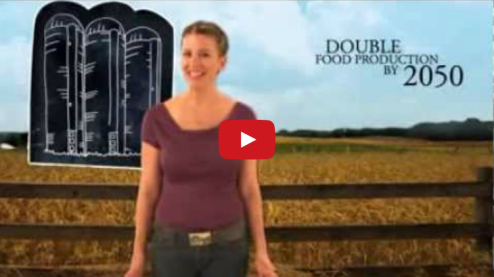I’ve gone organic, well, where an easy enough choice is available for not a completely unaffordable price. I’m trying to go to the Marrickville farmers markets on Sundays, to buy a box of ethical vegies, fruits, meats, and other products and support more local farmers and small business.
Why? It is a stretch to say that buying locally grown organic food can save the world, but from what I can tell it is an important part of moving toward a sustainable society. It saves CO2 emissions involved in transporting good from “developing” countries to the supermarket. Organic farming promotes biodiversity, maintains top soil quality, and hence is more nutritious than mono-crop farming.
If you think that the quality of our apples is getting worse, you are right. So are the varieties.
This video by Upworthy exposes three myths that we are told about industrial agriculture:
- Myth #1: We need technology like genetic engineering and pesticides to grow more food.
- Myth #2 : Food corporations are working hand in hand with farmers.
- Myth #3: We need to double food production in order to feed the planet by 2050.

Dr Vandana Shiva is doing great work on “seed sovereignty”, encouraging a return to traditional farming methods that care for the people who produce and eat the food, as well the soil, the planet and future generations:
On the other hand…
My friend who did a PhD in food security begged to differ with at least part of the points made about GM foods above. He believes that GMO foods in themselves are not necessarily bad (though they could do with more testing) but that the patenting of them is. He suggested I read a book called Tomorrow’s Table: Organic Farming, Genetics, and the Future of Food by and
the personal health and global implications for organic vs genetically modified, locally vs mass produced and transported foods…
No Comments Yet